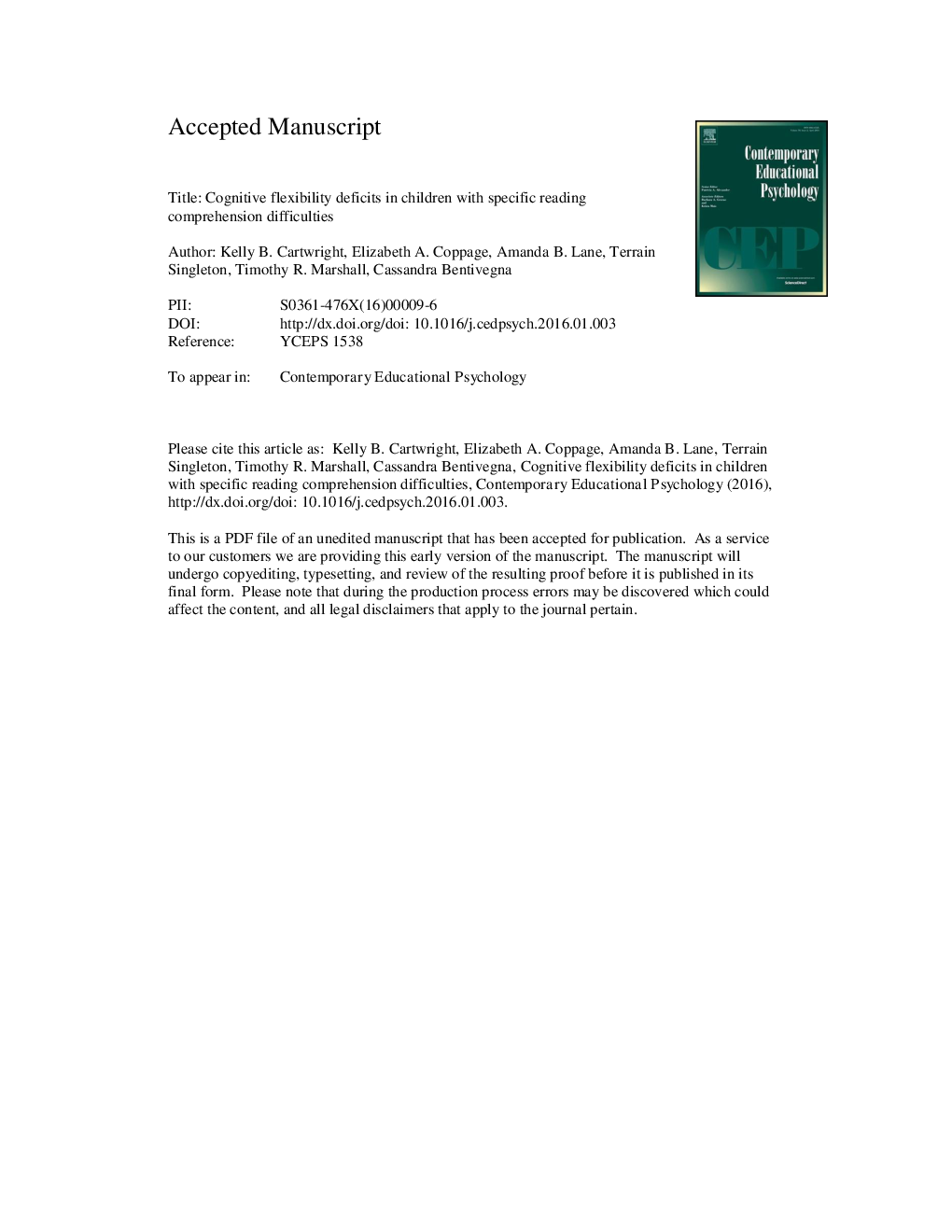ترجمه فارسی عنوان مقاله
کمبود انعکاسی شناختی در کودکان با مشکلات یادگیری خواندن خاص
عنوان انگلیسی
Cognitive flexibility deficits in children with specific reading comprehension difficulties
| کد مقاله | سال انتشار | تعداد صفحات مقاله انگلیسی |
|---|---|---|
| 155105 | 2017 | 55 صفحه PDF |
منبع

Publisher : Elsevier - Science Direct (الزویر - ساینس دایرکت)
Journal : Contemporary Educational Psychology, Volume 50, July 2017, Pages 33-44
ترجمه کلمات کلیدی
عملکرد اجرایی، درک مطلب، خوانندگان مبارزه نقص درک مطلب خواندن، مداخله درک مطلب پاسخ به مداخله،
کلمات کلیدی انگلیسی
Executive functioning; Reading comprehension; Struggling readers; Reading comprehension deficits; Reading comprehension intervention; Response to intervention;

